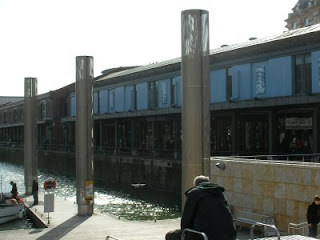While in Bristol I took the opportunity to visit the Watershed Centre and listen to a talk by Tim Harford. I know Tim as the presenter of BBC Radio 4’s More or Less but he is a writer and columist. In his latest book, the Logic of Life, he talks about the hidden economic logic in everyday life.

One of the interesting titbits I took away from this was an experiment in which volunteers were asked to fill in a survey (arbitrarily) and then offered a reward; the choice of a chocolate bar or a piece of fruit. One group were offered the choice to take away now, while another were told their reward would be brought to them in a week’s time. The group who were offered a reward now tended to choose the chocolate bar; while the group who were told they would receive their reward in a week tended to go for the fruit. After a week, when the researchers arrived to give them their reward they were given the option to change their choice, and a significant number changed to opt for the chocolate bar.
The conclusion, then, is that were are very good at deciding to make the correct choice in a week but tend to make bad decisions in the hear and now. Tim believes this explains some behaviour in dieting, quiting smoking, etc. As a chap who had packed an apple in his bag that morning but had subsequently bought a chocolate brownie, this has certainly stuck with me.
This reminded me of my own way of taking decisions. I have for a few years now always tried to take decisions as if I were not the one who has to follow through the consequences. I will think “is this the right thing to do?” or “shall I ask my assistant to do this?” If the answer is yes, as I don’t have an assistant I will have to do it myself. I find I tend to take better decisions when I abstract away the actual doing of the task. This came about when I realised people tend to give better advice than they themselves employ, and is of course a laziness-avoidance measure as well.